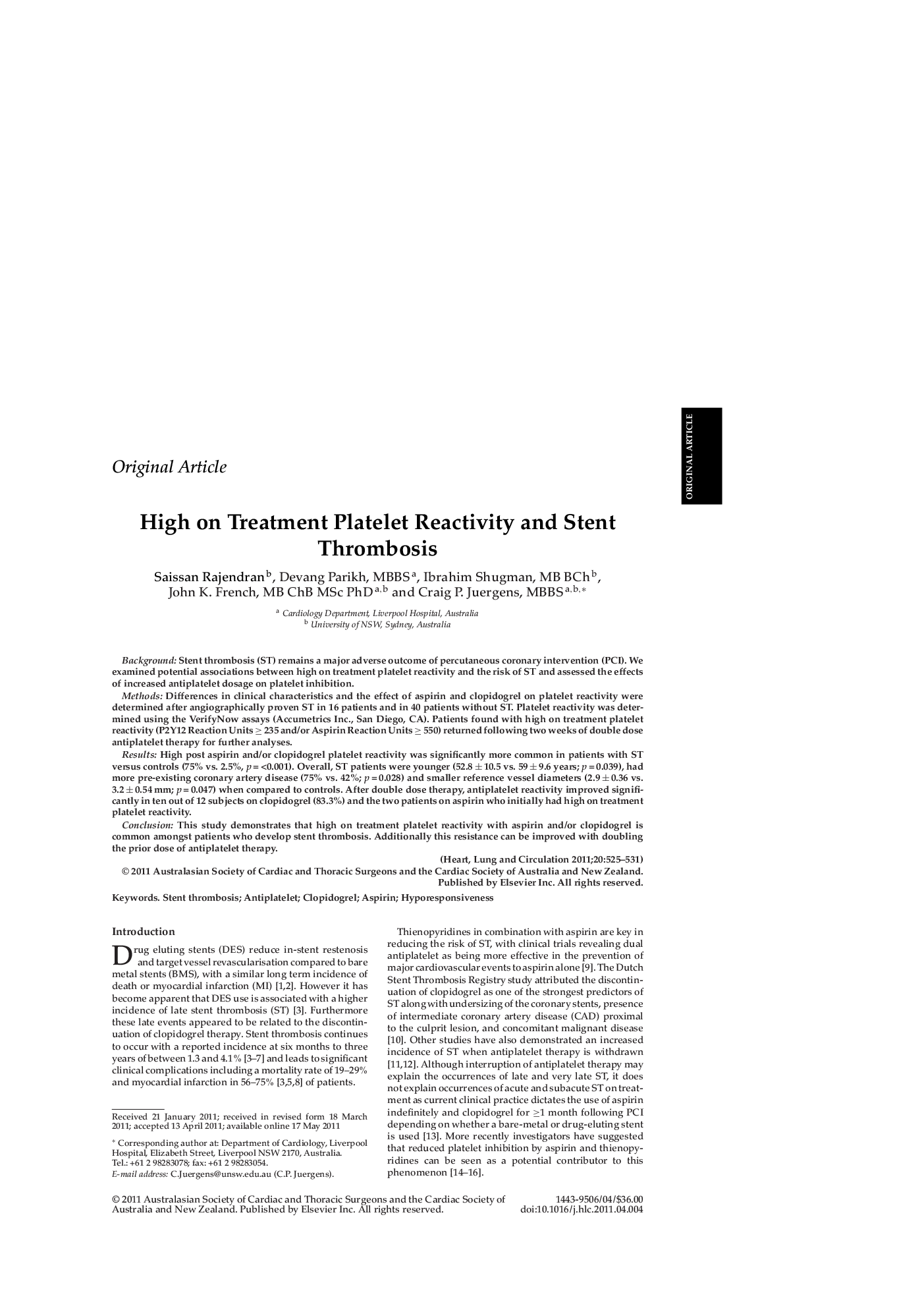| Article ID | Journal | Published Year | Pages | File Type |
|---|---|---|---|---|
| 2919293 | Heart, Lung and Circulation | 2011 | 7 Pages |
BackgroundStent thrombosis (ST) remains a major adverse outcome of percutaneous coronary intervention (PCI). We examined potential associations between high on treatment platelet reactivity and the risk of ST and assessed the effects of increased antiplatelet dosage on platelet inhibition.MethodsDifferences in clinical characteristics and the effect of aspirin and clopidogrel on platelet reactivity were determined after angiographically proven ST in 16 patients and in 40 patients without ST. Platelet reactivity was determined using the VerifyNow assays (Accumetrics Inc., San Diego, CA). Patients found with high on treatment platelet reactivity (P2Y12 Reaction Units ≥ 235 and/or Aspirin Reaction Units ≥ 550) returned following two weeks of double dose antiplatelet therapy for further analyses.ResultsHigh post aspirin and/or clopidogrel platelet reactivity was significantly more common in patients with ST versus controls (75% vs. 2.5%, p = <0.001). Overall, ST patients were younger (52.8 ± 10.5 vs. 59 ± 9.6 years; p = 0.039), had more pre-existing coronary artery disease (75% vs. 42%; p = 0.028) and smaller reference vessel diameters (2.9 ± 0.36 vs. 3.2 ± 0.54 mm; p = 0.047) when compared to controls. After double dose therapy, antiplatelet reactivity improved significantly in ten out of 12 subjects on clopidogrel (83.3%) and the two patients on aspirin who initially had high on treatment platelet reactivity.ConclusionThis study demonstrates that high on treatment platelet reactivity with aspirin and/or clopidogrel is common amongst patients who develop stent thrombosis. Additionally this resistance can be improved with doubling the prior dose of antiplatelet therapy.
